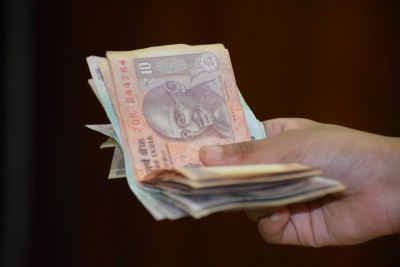
New Delhi, Nearly Rs 10 out of every Rs 100 saved by the Indian household each year goes to LIC, making it larger than even the perceived staple of household savings -- a deposit with SBI, foreign brokerage UBS said in a report.
LIC garners the lion's share of household savings flow -- at about 10 per cent each year; the number has come off over the years. LIC maintains lead over SBI's deposits -- the next largest destination for household savings in India, UBS said.
Media reports suggest the government is looking to tap into LIC's large customer base (280m policies, about one per family in India) to generate buying interest in the IPO.
UBS said the issue's sheer scale means the market's appetite will be tested. 2021 saw record total capital-raising of US$34bn (of which IPOs accounted for US$16bn) -- the government's target for LIC is 25 per cent of last year's capital-raising total. In 2021, retail investors accounted for 32 per cent of IPO subscription, and domestic institutional investors 21 per cent (a common source of both would be household savings).
Media reports suggest around half the issue will be reserved for non-institutional investors and retail. Successful completion of this IPO could have some impact on the market in general, and on the future IPO pipeline, in our view. As per SEBI listing guidelines, the government will have to mandatorily dilute its LIC stake to allow public shareholding of 10 per cent within 2 years and 25 per cent within 5 years, ensuring constant supply, UBS said.
With US$520bn total AUM, LIC is the largest institutional investor in Indian markets. Equity AUM of US$130bn gives LIC a 29 per cent share of domestic institutional equity AUM -- a shade more than half of all equity mutual funds in India. With this, LIC has about a 4 per cent stake in the Indian equities, making it the single-largest stakeholder after the government (promoter stake) -- albeit this number peaked in 2017 and has been falling gradually.
LIC has filed a draft prospectus for an IPO. Based on media reports, the government could raise Rs650bn (US$8.6bn) by selling a 5 per cent stake (all via an offer for sale), at a listing valuation of US$172bn.
At this scale, LIC would be the third-largest stock in India by market cap, and the 32nd-largest by free float, ensuring an entry into mainstream indices, e.g., Nifty-50.


.jpeg)

